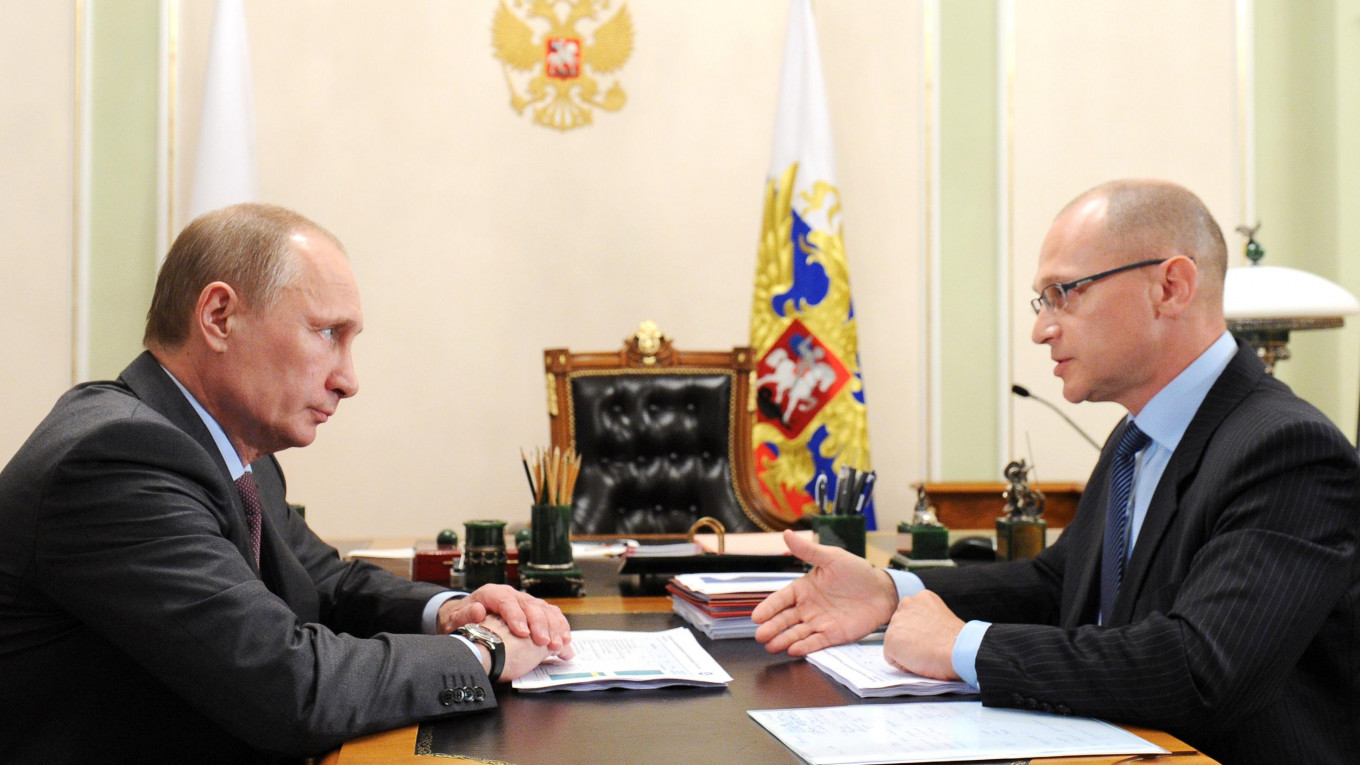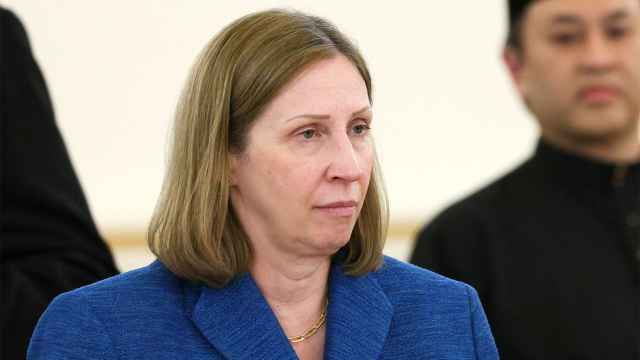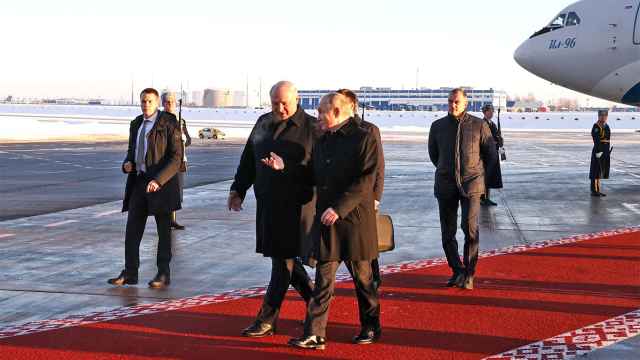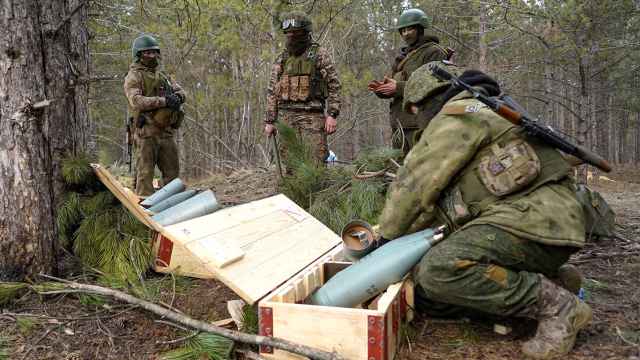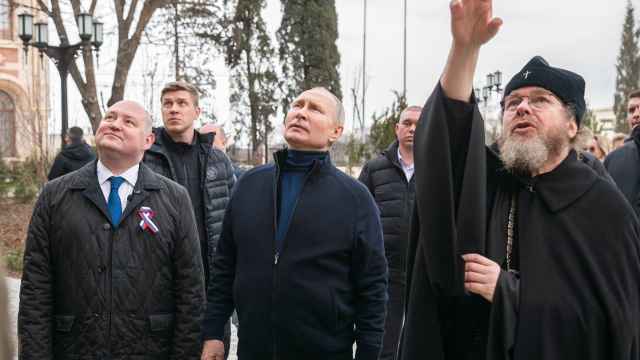According to reports, Sergey Kirienko is Vladimir Putin's top choice to replace Vyacheslav Volodin, who for the past four odd years has served as the Kremlin's first deputy chief of staff, overseeing domestic political affairs and “managing” the country's elections.
Almost two decades ago, Kirienko earned himself a reputation a man who simply wasn't all that lucky. In 1998, he had the misfortune of being the new prime minister, as a financial crisis swept over Central Asia toward Russia. The price of a barrel of oil plummeted from roughly $20 to just $8. On August 17, Kirienko's cabinet defaulted government bond coupons, devaluing the Russian ruble and crashing the economy, wrecking the federal budget and collapsing the banking system. Five days later, he resigned.
Kirienko had managed to hold onto his job for a mere five months.
“It was fair,” Kirienko said in an interview 13 years later. “Signing Russia’s default, I knew the government would quit the next day. I was surprised it happened only within a week.”
Now almost two decades after his brief stint as prime minister, Kirienko is reportedly next in line to inherit one of the most influential positions in the Kremlin, taking on the role played by Vyacheslav Volodin for the past several years.
In terms of Russian history and politics, Sergey Kirienko is a curious, even mysterious, figure: a Communist Youth activist in the mid-1980s and a banker since the early 1990s in the Volga city of Nizhny Novgorod, he rocketed to the top in 1997, when he was appointed to serve as a deputy minister of energy.
Kirienko was still enjoying good luck in those days, riding the promotion of the extremely popular Nizhny Novgorod governor, Boris Nemtsov (who years later joined the anti-Kremlin opposition and was ultimately gunned down in February 2015). Together with Anatoly Chubais, a renown “reformist” known as “the father of Russian privatization,” Nemtsov was invited to join a new government composed of so-called “young reformers” under Prime Minister Viktor Chernomyrdin. Nemtsov brought along Kirienko to head the Energy Ministry.
Less than a year later, in a surprise move by President Boris Yeltsin, Kirienko replaced Chernomyrdin as prime minister. Kirienko was just 35 — the youngest prime minister in Russia's history. Once in office, Kirienko moved forward with the reformist agenda, forcing the privatization of state assets. He did this while confronting strikes by miners across the country.
After resigning, together with Nemtsov and Chubais, Kirienko helped form a new liberal political party: the Union of Right Forces (SPS), looking to carry forward the torch of the liberal movement of the early 1990s, most closely associated with Yeltsin's first prime minister, Yegor Gaidar.
With Kirienko leading the party, SPS won 8.5 percent of the electorate in the 1999 parliamentary elections. Early the next year, Kirienko and the SPS leadership endorsed Vladimir Putin in the presidential election, naming him the best man to replace Yeltsin.
“When we started working in the parliament,” Kirienko later told a TV interviewer, “I remember this was the only time in my life when I didn't want to go into the office, after waking up in the morning.” After a few months of this, a source tells The Moscow Times, Kirienko informed Vladimir Putin that he was planning to run for governor in Nizhny Novgorod. The president reportedly told Kirienko that he might have something more interesting to offer.
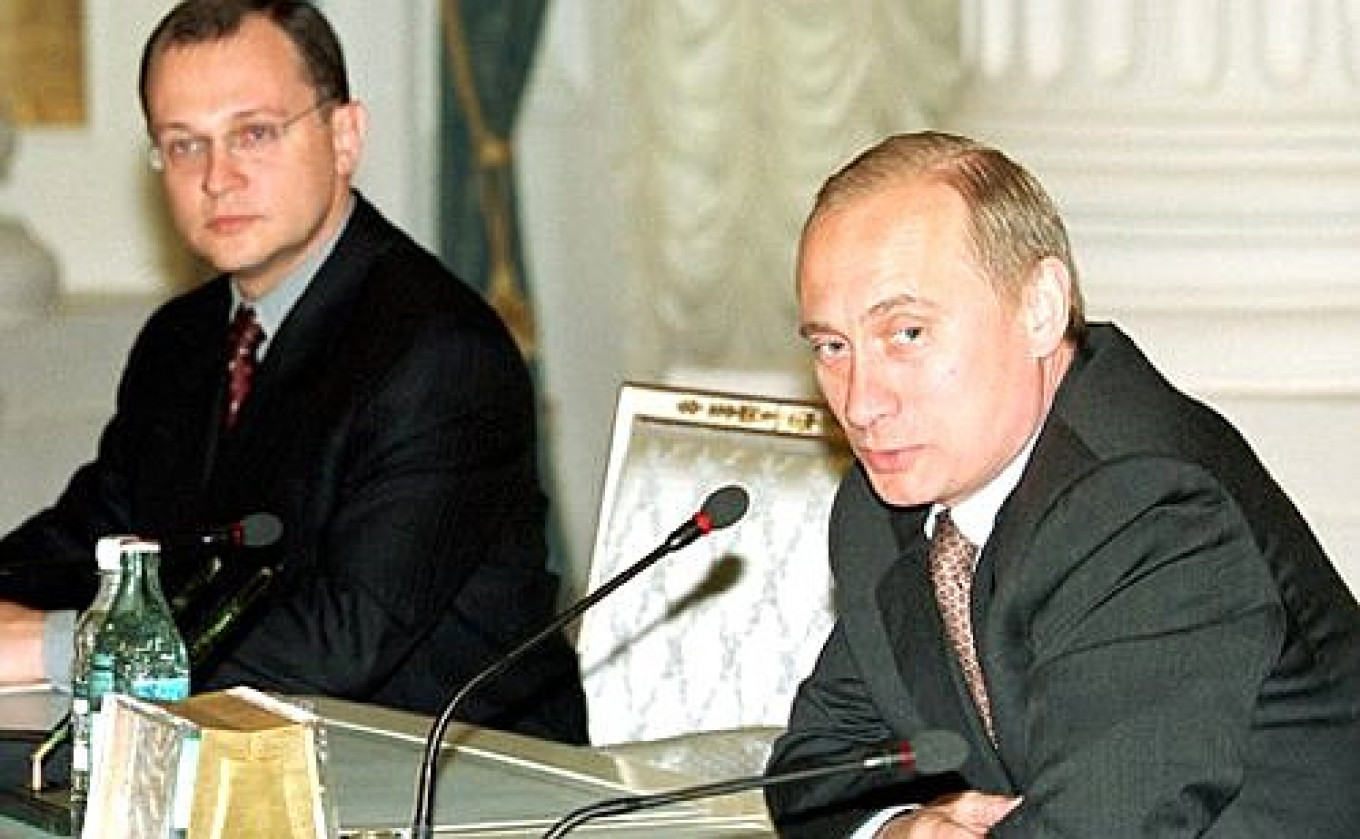
In May 2000, Kirienko was named Putin's special representative in Povolzhye — a new position that Putin introduced after being elected president. As special representative, Kirienko successfully clamped down on separatist movements in the republics of Tatarstan and Bashkortostan.
In 2005, Kirienko was made the head of Rosatom, then Russia's state nuclear agency. Within two years, Rosatom had transformed into a state corporation. In this new iteration, Rosatom was everything bundled into one: a nuclear policy center, a state agency, and an international business enterprise, says Leonid Bolshov, the director of the Institute for Safe Development of Nuclear Energy. With Kirienko at the helm, Rosatom became a world leader in nuclear technologies and services.
For the deade that Kirienko led Rosatom, Russia's nuclear industry enjoyed enormous state investment, according to former Deputy Energy Minister Vladimir Milov. Rosatom has consistently benefitted from a special relationship with the Kremin. As head of Rosatom, Kirienko has apparently enjoyed Putin's complete trust.
Kirienko is also a skilled student of aikido and a traveler. According to rumors, he supposedly practiced scientology in the early 1990s.
Despite his advancement, Kirienko has maintained his reputation as a reformer and a progressive, meaning that his potential appointment to replace Volodin in the Kremlin would upset the current trend in Moscow favoring conservative and isolationist officials. Rosatom has not been hit by sanctions after the annexation of Crimea.
Why would Putin now turn to Kirienko? The move is connected to the president's re-election plans for 2018, though it remains unclear what role Kirienko is meant to play in this process.
“He still might decide on a successor, but psychologically, for both Putin and the entire political elite, it is much more comfortable for him to stay,” Yevgeny Minchenko of Minchenko Consulting told The Moscow Times. “Here he has two options: he runs in 2018, or the Kremlin makes some technical changes, with the help of the Duma (which won’t get in its way), and organizes an early election.”
If Kirienko takes Volodin's spot as one of Russia's highest-ranking Kremlin officials, the options laid out by Minchenko remain in play — including the still rather unlikely chance that Putin might nominate Kirienko to be his successor.
A Message from The Moscow Times:
Dear readers,
We are facing unprecedented challenges. Russia's Prosecutor General's Office has designated The Moscow Times as an "undesirable" organization, criminalizing our work and putting our staff at risk of prosecution. This follows our earlier unjust labeling as a "foreign agent."
These actions are direct attempts to silence independent journalism in Russia. The authorities claim our work "discredits the decisions of the Russian leadership." We see things differently: we strive to provide accurate, unbiased reporting on Russia.
We, the journalists of The Moscow Times, refuse to be silenced. But to continue our work, we need your help.
Your support, no matter how small, makes a world of difference. If you can, please support us monthly starting from just $2. It's quick to set up, and every contribution makes a significant impact.
By supporting The Moscow Times, you're defending open, independent journalism in the face of repression. Thank you for standing with us.
Remind me later.



